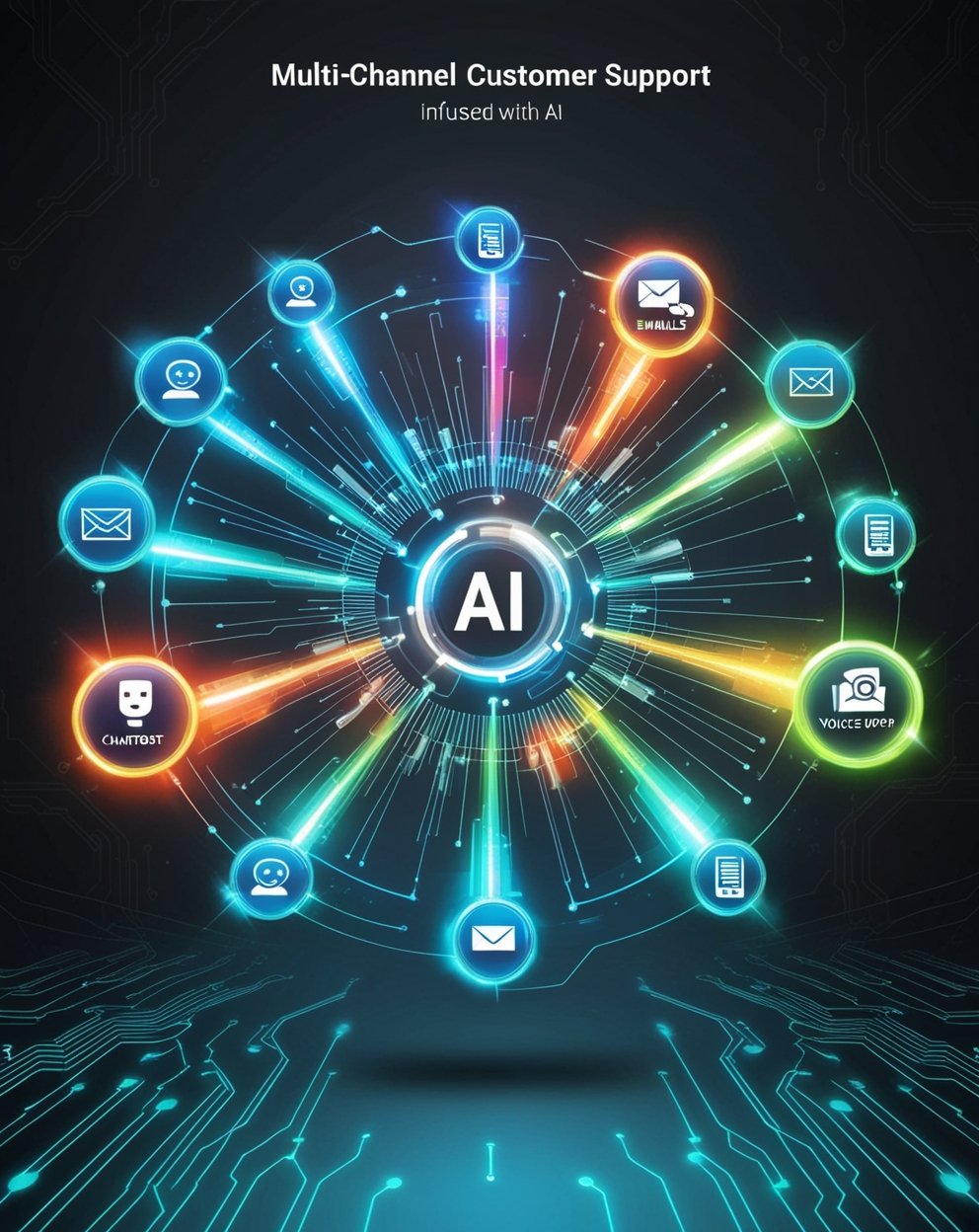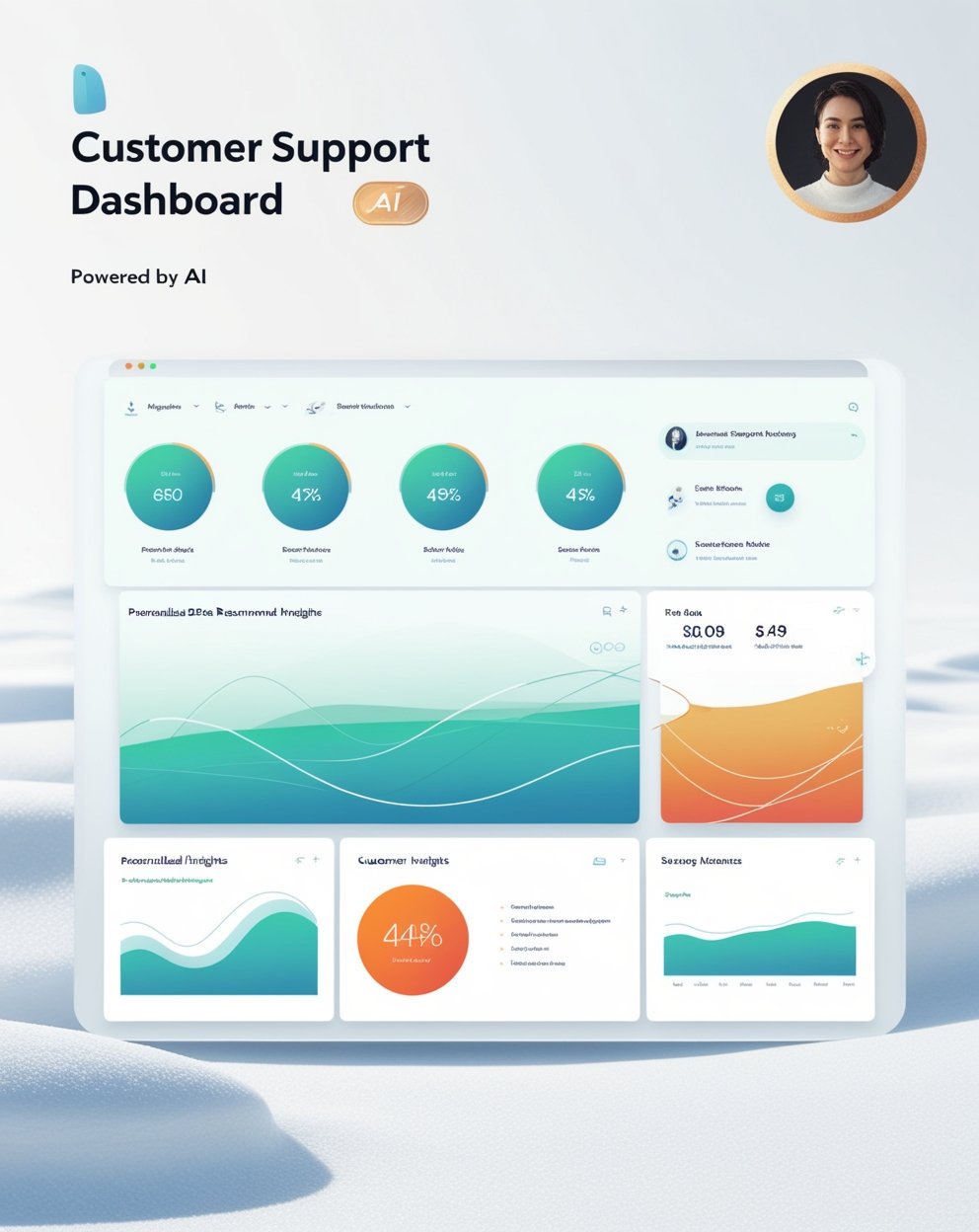AI Tools for Automating Customer Support: A Comprehensive Guide

In the fast-paced digital world, consumers expect quick, accurate, and personalized assistance—something traditional methods often struggle to provide. Enter AI tools for automating customer support, a game-changer in enhancing customer satisfaction while cutting costs. Let’s dive into this comprehensive guide to understand how these tools work, why they’re essential, and which ones you should consider for your business.
What Are AI Tools for Customer Support?
AI tools for customer support are software solutions powered by artificial intelligence that help businesses automate repetitive tasks such as answering queries, resolving complaints, and offering assistance. These tools leverage technologies like natural language processing (NLP), machine learning (ML), and sentiment analysis to deliver personalized and accurate customer interactions.

The Benefits of AI Tools in Customer Support
- Faster Response Times
Nobody likes waiting in a queue. AI tools, such as chatbots, provide instant responses, ensuring customers receive timely assistance without delay.
- Cost Efficiency
Automating support tasks reduces the need for large customer service teams, significantly cutting down operational costs while maintaining high-quality service.
- 24/7 Availability
Unlike human agents, AI tools work round the clock. This ensures that customer queries are handled even during off-hours or global time zones.
- Scalability
Whether handling 10 or 10,000 queries at once, AI tools scale seamlessly without compromising efficiency.
- Enhanced Customer Insights
AI tools analyze data from customer interactions, providing actionable insights that help businesses improve their products or services.

Top AI Tools for Automating Customer Support
- Chatbots
AI chatbots like Zendesk AI, Drift, and Intercom are leaders in handling repetitive customer queries. They integrate with websites, apps, and social platforms to provide a seamless customer experience.
- Virtual Assistants
Tools like Google Dialogflow and IBM Watson Assistant use NLP to understand complex queries and provide human-like responses.
- AI-Powered CRM
Platforms like Salesforce Einstein leverage AI to provide intelligent customer relationship management, automating task assignments and prioritizing customer issues.
- Sentiment Analysis Tools
Solutions like MonkeyLearn and Lexalytics analyze customer emotions, helping businesses respond more empathetically.
- AI Call Center Solutions
Five9 and Talkdesk AI optimize voice-based customer support with AI-driven insights and automation, reducing call resolution times.
- Helpdesk Automation
Freshdesk AI and Zoho Desk automate ticket generation, assignment, and resolution, streamlining support workflows.

How AI Enhances Personalization in Customer Support
Personalization is crucial in building customer trust. AI tools use data from past interactions to tailor responses, recommend products, or proactively resolve issues. For example, Amazon Alexa remembers your preferences, while Netflix AI recommends shows based on your watch history.


Implementing AI Tools: A Step-by-Step Guide
- Identify Your Needs
Determine which areas of your customer support process can benefit from automation—chat, email, or voice support.
- Choose the Right Tools
Research AI tools that align with your business goals, such as reducing response times or analyzing customer feedback.
- Integrate with Existing Systems
Ensure the tools integrate seamlessly with your CRM, helpdesk, or other software for a unified experience.
- Train the AI
Feed the AI relevant data to improve its accuracy and effectiveness in handling customer interactions.
- Monitor and Optimize
Regularly analyze the performance of your AI tools and fine-tune them to ensure optimal results.
Cons of AI in Customer Support
- Lack of Human Empathy
While AI tools are efficient, they can’t replicate human emotions, which may be necessary for handling sensitive issues.
- Initial Setup Costs
Although cost-effective in the long run, implementing AI tools requires significant upfront investment.
- Complex Queries
AI tools may struggle with unusual or highly specific queries, requiring human intervention.

Future of AI in Customer Support
The future is bright, with AI tools becoming smarter and more integrated. Emerging technologies like AI-generated voice assistants and predictive analytics will revolutionize customer support even further. Businesses investing in these tools today are setting themselves up for long-term success.
Conclusion
AI tools for automating customer support are no longer a luxury—they’re a necessity for businesses aiming to stay competitive. From chatbots to sentiment analysis, these tools not only streamline processes but also enhance customer satisfaction. By implementing the right tools, your business can deliver faster, better, and more personalized support experiences. So, are you ready to justify the AI revolution?
What are the best AI tools for automating customer support?
Popular options include Zendesk AI, Salesforce Einstein, IBM Watson Assistant, and Freshdesk AI.
How does AI improve customer support?
AI ensures faster responses, 24/7 availability, and better personalization while reducing costs.
Are AI tools expensive?
Initial setup costs can be high, but the long-term savings on operational expenses make them cost-effective.
Can AI handle complex customer queries?
While AI tools are adept at handling routine queries, complex issues often require human intervention.
Is AI the future of customer support?
Absolutely. With advancements in NLP and machine learning, AI will play a pivotal role in transforming customer support.

As a UK-based digital expert, we partner with innovative startups, B2B trailblazers, and fintech disruptors to craft bespoke online experiences that drive real results. We deliver high-performing websites that elevate your brand and accelerate your growth.
Contact Us
+44 7359 497 513
hello@nexaphaze.com
80 – 90, Paul Street, London EC2A 4NE

